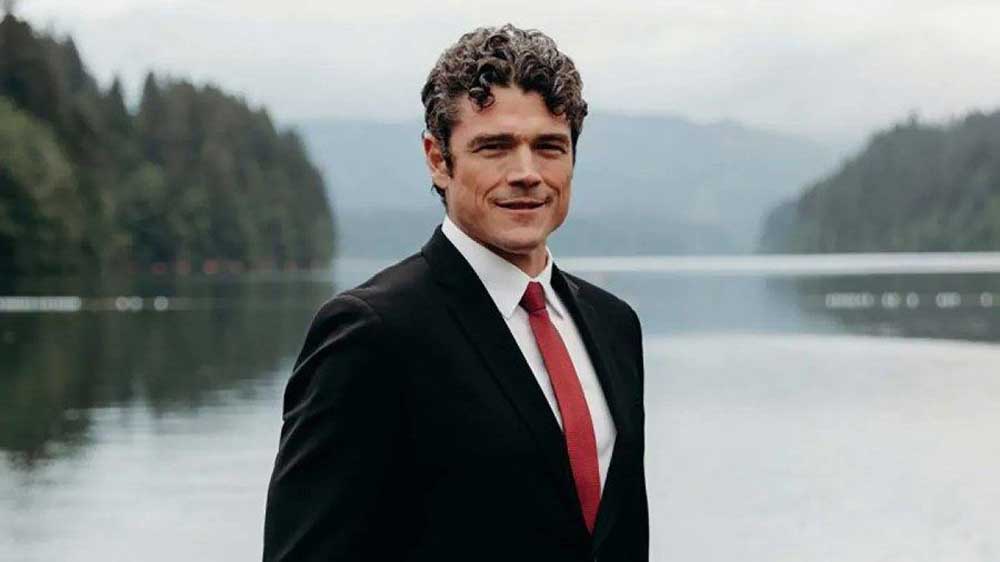Letters to the Editor 021225
Published 4:09 pm Wednesday, March 5, 2025
‘Help Solve a Murder’ docuseries needs support
Help Solve a Murder, a powerful six-part docuseries, launched its Kickstarter campaign on March 1. The series amplifies the voices of Black mothers and families in Portland who are fighting for justice after losing loved ones to gun violence.
The docuseries explores how deaths caused by gun violence have devastated communities and how systemic failures across Portland’s justice system have left families with nothing but grief. These families’ demands for accountability have fallen on deaf ears in a city grappling with deeply rooted racism, gentrification, and displacement.
I’m not just telling my story. I’m telling the stories of every family in Portland who has been ignored by a system that fails them. This project is a call for justice that has been too long delayed.
In collaboration with the Alliance for a Safe Oregon, a nonprofit on a mission to end gun-related tragedies, and with production support from the creative storytelling company Gal Pal, this Kickstarter campaign will raise funds for the pre-production and production phases of the docuseries.
With support, Help Solve a Murder will shine a light on the ongoing fight for justice in Portland’s communities impacted by gun violence and advocate for change in a broken system.
This project is more than just a docuseries, it’s a call to action.
Asianique Savage
Northeast Portland
Oregon activists demand apology to Ukraine’s president
HOOT (Holding Our Own Together), a small group of grassroots activists from West Linn, Lake Oswego and Oregon City, is urging Congress to introduce a resolution apologizing to Ukrainian President Volodymyr Zelensky, on behalf of the American people, for the disgraceful behavior of President Trump and Vice President Vance during a media event in the Oval Office.
We call on all Oregonians to phone or write their members of Congress and urge them join in this effort to show the world that we, the people of the United States of America, respect Constitutional democracy and the rule of law.
HOOT members attended Sen. Jeff Merkley’s recent Town Hall meeting in Oregon City and were inspired by his call to “get off the sofa” and join with other activists in raising the alarm over our nation’s plunge into authoritarianism.
The local group will write letters and postcards, make phone calls, attend rallies and attempt to persuade others to form similar groups, drawing members from their neighborhoods or circles of friends. The object is to create a groundswell of support for our long tradition of respect for the institutions of representative democracy.
The phrase “United we stand, divided we fall” has been traced back to the Greek storyteller Aesop, who lived during the 6th century B.C. Fast forward to America today and these words ring true.
David Hedges
Oregon City
Expanding obesity treatment can help kidney patients
March is National Kidney Month, which is personal for me as I am a kidney donor to my older brother, who lived with kidney disease his entire life. It is estimated that over 35 million American adults have kidney disease, and roughly 1 in 3 adults are at risk.
It’s frightening to consider the future of research and treatment for kidney disease as this administration takes steps threatening funding. However, there is an opportunity to help those living with kidney disease: expanding access to anti-obesity medications.
In November, the Centers for Medicare and Medicaid Services (CMS) issued a rule to allow Medicare and Medicaid to cover anti-obesity medications. Obesity is a leading risk factor for kidney disease, and according to the National Kidney Foundation, these medications have demonstrated kidney-protective and cardiovascular benefits in clinical trials.
Obesity also contributes to diabetes, heart disease, cancer and many other conditions. Making these medications available to those living with obesity and related diseases is essential for improving health outcomes and could lead to significant healthcare savings which should be of interest to an Administration so focused on reducing the budget.
Our delegation is rightly focused on challenging many actions taken by the Trump administration. However, during National Kidney Month, I hope this will be one instance where they encourage the administration to act and help kidney patients and all Americans impacted by obesity by finalizing the CMS rule that will allow more patients to benefit from these crucial medications.
Kathy Cochran
Southwest Portland
Congressman Bentz supports cuts that hurt Oregonians
The federal administration’s latest budget proposal delivers a devastating blow to low-income Oregonians. The proposed Medicaid cuts threaten healthcare access for millions, making it harder for struggling families to afford doctor visits, prescriptions and critical care. Additionally, a $230 billion cut to the Supplemental Nutrition Assistance Program (SNAP) over the next decade could strip food assistance from over 9 million low-income Americans each month.
These cuts won’t just mean more people skipping meals or going without medical care, they will lead to a direct increase in homelessness and higher death rates. Medicaid and SNAP support low-income Oregonians in meeting their basic needs, from feeding themselves and paying rent to accessing life-saving medications. Without this support, many will have to make the tough call between housing or being able to afford food.
SNAP often isn’t enough, and in rural Oregon, where food insecurity and healthcare access are already strained, these cuts will hit the hardest. Communities that have already been struggling to stay afloat will face even steeper challenges.
U.S. Rep. Cliff Bentz voted on Feb. 25, 2025, to slash funding for Medicaid and SNAP, despite his district being severely impacted by the 2020 wildfires. In counties like Malheur and Umatilla, many families turned to these programs for the first time after losing everything. Cutting these vital funds will directly harm those who are still working to rebuild their lives.
If Bentz truly cared about his constituents, he would support policies that help them recover, not side with billionaires.
Charlie Krouse
Southeast Portland
Pass the bipartisan Alternatives to Pain Act
My recent hip replacement surgery revealed the challenges of pain management, especially for those with complex medical histories. As a kidney donor, I had limited options—most NSAIDs were off-limits, leaving opioids as my only choice. But last month, the FDA approved the first non-opioid pain treatment in 20 years, a step forward—if patients can access and afford it.
My situation is not unique. As a psychologist, I’ve seen how pain management can become a slippery slope. What begins as necessary relief can quietly turn into dependency. This isn’t about willpower but a system that steers patients toward the most expedient, not necessarily the safest, solution. The line between pain relief and addiction is thinner than most realize. Patients need access to all relevant medicines and supportive care like physical and psychological therapy to have the best possible outcomes and avoid addiction.
That’s why the bipartisan Alternatives to PAIN Act in Congress and SB 598 in Oregon matter. These bills remove financial and administrative barriers to alternative pain treatments, offering real choices beyond opioids. With overdose deaths surging in Oregon, legislative action is critical to preserving lives and dignity.
Our lawmakers have a chance to make a difference. I urge Oregon legislators to pass SB 598 now that it’s been reintroduced and assigned to the Senate Finance Committee. Senator Wyden should push for a hearing.
Better pain management isn’t about eliminating opioids but ensuring they aren’t the default. One-size-fits-all solutions fail patients. It’s time we expand access to safer, effective alternatives.
Anne Samson
Northwest Portland
Blanket firings won’t fix government waste issues
It is naive to think DOGE can eliminate government waste by blanket firings. As a retired government employee, I can attest there is waste in government. However, it is extremely inefficient to assume that by blanket firing government employees you have eliminated waste. That’s not how it works.
That way only serves to bollix critical and necessary programs. For example, recent cutbacks to the DOE created risks for nuclear management (necessitating the rehire of fired employees). There are many more examples. And how do you replace employees who retire or leave for other jobs when you eliminate all probationaries (new hires)?
The realistic way to eliminate waste is to do an unbiased analysis of each agency and its functions and determine which are necessary and which are not. (For instance, many pork barrel projects are often politically motivated and not always needed. This creates waste.)
Also necessary is an examination of personnel policies and performance standards. Bad managers and poorly performing staff are problem areas common to most agencies. (I have seen many bad managers moved to other positions rather than being fired; this is called management protectionism.) Cronyism in hiring and duplication of functions are areas that =create waste, among others.
DOGE is not eliminating waste. Rather, it is downsizing federal agencies in ways that create vast reductions in the quality of services, which will someday have to be corrected and paid for by us. And leave our Social Security information alone.
David Krogh
Southeast Portland
Protect and honor U.S. Peace Corps
On March 1, 2025, Peace Corps will celebrate its 64th anniversary as an independent agency established by President JFK. Given the recent halt of foreign aid and the gutting of USAID, I fear that the Peace Corps will also soon be on the chopping block. Fun fact: since 1961, 6,601 Oregonians have served as Peace Corps volunteers.
I am a former Peace Corps volunteer who served in Guatemala from 2010-2013. I collaborated with my Guatemalan colleague to address the needs of rural Mayan women, considered that country’s most oppressed group. We taught skills in citizen involvement, how to finance projects to improve their quality of life, and more. Our efforts also lessened the chance that they would seek to migrate to the USA. Peace Corps volunteers help people in developing countries with their needs in education, agriculture, health, trade, and technology. This international cooperation and humanitarian assistance contribute directly to our country’s security.
The Trump/Musk regime seeks to end nearly all nonmilitary aid to other countries, thus, abdicating our leadership role to support developing countries. It’s important to realize that the Peace Corps is a true bargain for the federal government. In 2010, my salary was approximately $350/month, typical for Peace Corps volunteers at that time, and likely the current salary has barely increased. In honor of its 64th birthday and before any cuts happen, please call your elected officials to ask them to support continued funding of the Peace Corps!
Janet Wright
Eugene







